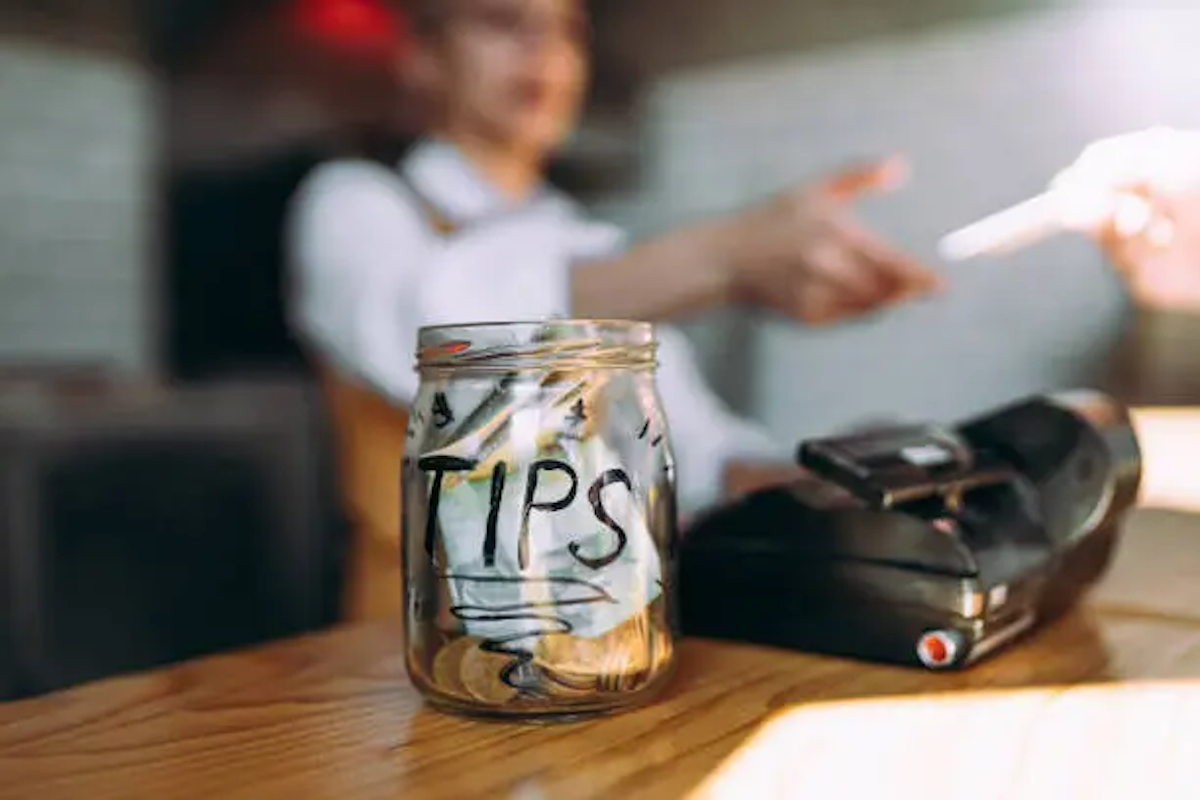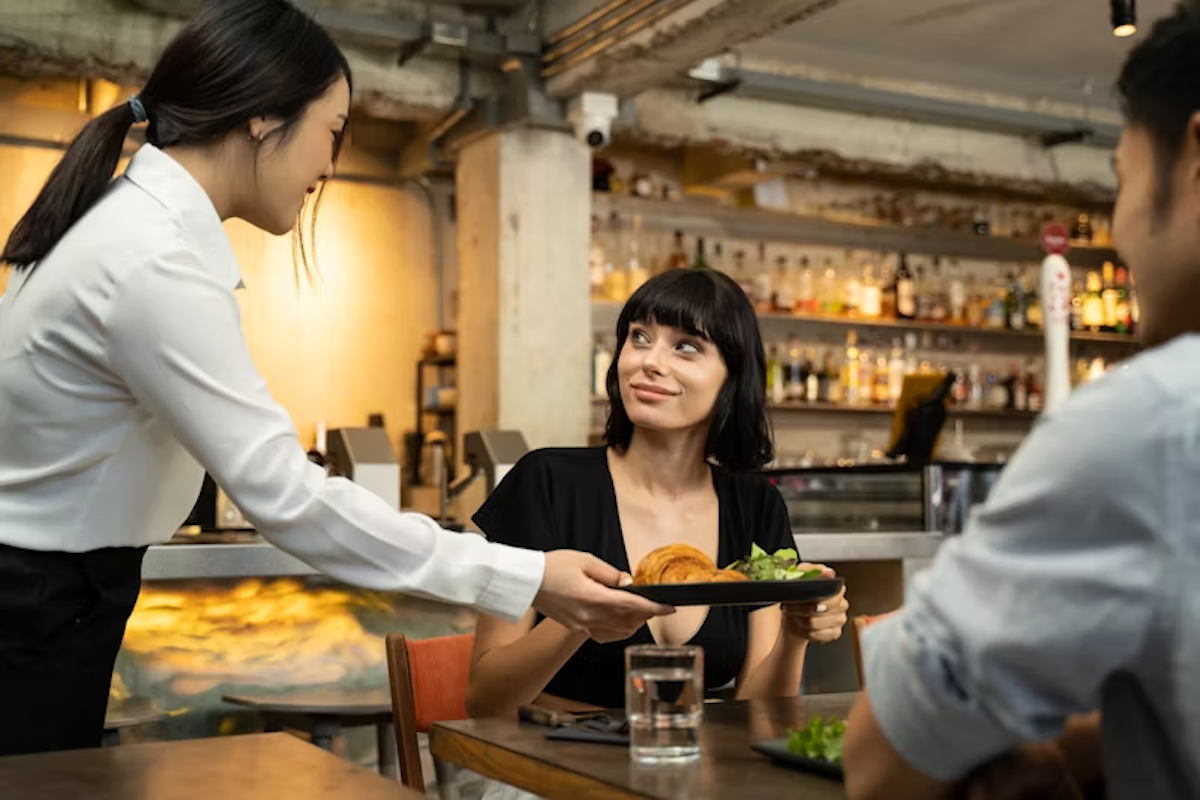5 Restaurant Consumer Spending Trends to Know in 2025
Consumer spending is a big factor in how the restaurant industry operates, especially as we move through 2025. Inflation has shifted how people spend...
Platform
Combining online ordering, loyalty, omnichannel messaging, AI insights, and payments in one platform. Paytronix delivers relevant, personal experiences, at scale, that help improve your entire digital marketing funnel by creating amazing frictionless experiences.
A Complete Customer Experience Platform
Online Ordering
Acquire new customers and capture valuable data with industry leading customization features.
Loyalty
Encourage more visits and higher spend with personalized promotions based on individual activity and preferences.
Catering
Grow your revenue, streamline operations, and expand your audience with a suite of catering tools.
CRM
Build great customer relationships with relevant personal omnichannel campaigns delivered at scale.
Artificial Intelligence
Leverage the most data from the most customer transactions to power 1:1 marketing campaigns and drive revenue.
Payments
Drive brand engagement by providing fast, frictionless guest payments.
Solutions
We use data, customer experience expertise, and technology to solve everyday restaurant and convenience store challenges.
Contactless Experiences
Accommodate your guests' changing preferences by providing safe, efficient service whether dining-in or taking out.
Customer Insights
Collect guest data and analyze behaviors to develop powerful targeted campaigns that produce amazing results.
Marketing Automation
Create and test campaigns across channels and segments to drive loyalty, incremental visits, and additional revenue.
Mobile Experiences
Provide convenient access to your brand, menus and loyalty program to drive retention with a branded or custom app.
Subscriptions
Create a frictionless, fun way to reward your most loyal customers for frequent visits and purchases while normalizing revenues.
Employee Dining
Attract and retain your employees with dollar value or percentage-based incentives and tiered benefits.
Order Experience Builder
Create powerful interactive, and appealing online menus that attract and acquire new customers simply and easily.
Loyalty Programs
High-impact customizable programs that increase spend, visit, and engagement with your brand.
Online Ordering
Maximize first-party digital sales with an exceptional guest experience.
Integrations
Launch your programs with more than 450 existing integrations.
Loyalty Programs
Deliver the same care you do in person with all your digital engagements.
Online Ordering
Drive more first-party orders and make it easy for your crew.
Loyalty Programs
Digital transformations start here - get to know your guests.
Online Ordering
Add a whole new sales channel to grow your business - digital ordering is in your future.
Integrations
We work with your environment - check it out.
Company
We are here to help clients build their businesses by delivering amazing experiences for their guests.
Meet The Team
Our exceptional customer engagement innovations are delivered by a team of extraordinary people.
News/Press
A collection of press and media about our innovations, customers, and people.
Events
A schedule of upcoming tradeshows, conferences, and events that we will participate in.
Careers
Support
Paytronix Login
Order & Delivery Login
Resources
Learn how to create great customer experiences with our free eBooks, webinars, articles, case studies, and customer interviews.
FlightPaths are structured Paytronix software onboarding journeys designed to simplify implementation and deliver maximum ROI.
See Our Product In Action
E-Books
Learn more about topics important to the restaurant and c-store customer experience.
Reports
See how your brand stacks up against industry benchmarks, analysis, and research.
Blog
Catch up with our team of in-house experts for quick articles to help your business.
Case Studies
Learn how brands have used the Paytronix platform to increase revenue and engage with guests.
Is your brand tapping into these three unshakeable pillars of guest loyalty in 2025?
7 min read
Oct 21, 2024

Getting your catering business license might sound like another checkbox in the business launch process, but it’s the very foundation of your venture. Without it, those culinary dreams won’t be able to legally take flight.
Licenses and necessary permits ensure that your venture isn't just whipping up mouthwatering menus but also operating with full legitimacy and trustworthiness. In this article, you’ll find a step-by-step overview on how to get a catering license so you can start serving up delicious food with peace of mind.
Before your knives hit the chopping board, securing a catering business license is step one. It gives you legal clearance to accept customers while ensuring you stay compliant with local and state laws.
Consider it as critical as launch day, because without it, you can’t officially provide catering services.
Then there's the catering permit, which regulates the food and drink you plan to offer. Whether serving eye-catching wedding cakes or power lunches at corporate retreats, your permit confirms you follow current health and safety standards.
Another key ingredient in this mix is the food handling permit. This one's for safeguarding your diners' health and safety. It might call for some training and certificates but think about how reassuring it will be when guests know their gourmet bites aren't just delicious but prepared with utmost care.
Sometimes, though not always, an alcohol license or event-specific permissions are required depending on local laws. Conduct your own research and double check details with a lawyer to make sure you fulfill all needs.
As is often the case when interacting with bureaucratic systems, getting a catering business license might sound overwhelming. With the right steps and preparation, it’s straightforward.
Each state or locality has its own set of rules, so doing your homework upfront can save some serious frustration later. Regardless of whether you’re running operations out of a commercial kitchen, from home, or an online ordering business model, the law applies equally across the board.
Not sure how to get started? Head over to your local government website and look up specific regulations for catering businesses in your area.
These are usually found through health departments or business licensing offices. Most provide handy checklists that outline the necessary forms, permits, and fees based on where you're setting up shop.
Before applying for your catering business license, you’ll need to gather a few documents. These requirements differ from state to state but essentially boil down to:
Every US state has its own set of rules, procedures, and timeframes for submitting a catering business application. Depending on which state you work out of, you can start by searching online for “Catering License 'state name'" and read up on your state's particular requirements.
Generally, the process will involve either applying through a completely digital form or printing, filling, and submitting your application form(s) and accompanying documents at a local government office. Timeframes for application completion may be anywhere from a few business days to several weeks.
Kicking off requires more than just great recipes and a passion for food. You’ll also need to understand what permits are needed for getting your catering business up and running.
A word of caution: there are quite a few of them.
Depending on where you set up shop and what services you offer, permit requirements will vary, but they all serve one purpose: keeping your operation legal and your patrons safe.

Before firing up your burners, determine all of the specific permits your business needs. No matter where you dish out deliciousness or what form it takes, expect that you’ll need the following:
Getting started with all of this government paperwork means reaching out to both local health departments and business licensing providers. You’ll need to get clarity on what suits you best based on how and where you operate.
Accuracy is important. There’s nothing worse than spending hours gathering and/or completing documents only to have to scrap the application and start over. Ensure your complete application includes every necessary document, such as your Food Safety Certification and Commercial Kitchen Approval from the local health department.
Confirm that your catering business license hasn't expired before you submit it. And if drinks are part of your gig, remember to include a catering liquor license with your paperwork so everything moves smoothly.
To be absolutely sure, get a business law firm involved to go over everything before you submit. A modest, short-term investment can save you thousands of dollars later on, not to mention protection from business loss as well.
Permits have their own shelf life, and they need to be refreshed regularly. Typically, food handling or catering permits require updating every year.
So, mark those calendars and renew both your catering permit and Food Handling Permit promptly. All cooking and serving infrastructure should ideally be clean before inspections. As your service line expands or expands into new geographic areas, update those permits like occupancy and food handling certification for all new employees.
The cornerstone of a booming catering enterprise lies in food safety, with the right permits proving to your employees, casual and corporate catering clients, and partners that your catering business is legitimate.
Securing a food handling permit is far more than ticking off a box for legal reasons. It's essential for customer well-being and safeguarding your business’s good name. Handled correctly, food safety reduces health risks considerably, keeping your high-quality services untainted by contamination scares or lawsuits.
Wondering how to get a food handling permit? It involves completing a food safety course, passing an exam, and then formally requesting the permit from your local health department.
This informative journey teaches you everything from keeping leftovers safe in the fridge to making sure every surface shines spotlessly clean.
Staying aligned with health regulations means rolling up your sleeves for routine self-checks because surprise visits from health inspectors can happen at any time.
While it’s likely that as a restaurant and catering business owner, you already understand these requirements, remember that these rules exist to let customers know their meals are in responsible hands. It also greatly reduces the likelihood of accidents, because even under ideal circumstances, human error happens. Such protection also lowers the likelihood of being sued or having to close your business.
Running a catering business isn't all cakes and platters. There are several legal requirements you’ll need to be familiar with.
Compliance with local health codes is mandatory. While each state sets its own rules, they generally always boil down to these:
Double-check your area's regulations. The best way to understand your state's requirements is to search online for "<your state> health codes.” You can also look into the FDA food code and local ordinances, such as the California Retail Food Code and the New York City Doh Health Code, for a more general overview of health codes.
A solid general liability insurance policy for those slip-ups or mishaps can save a lot of time and money. It’s also mandatory for all restaurants and catering businesses to stay licensed.
In addition to general liability, caterers should also have the following:
If you're serving drinks, look into extra safety nets like Product Liability Insurance or Liquor Liability Insurance.
Zoning laws are all about location, location, location (which is also the biggest rule in real estate), and they don’t stop being important once you have secured approval. These laws dictate what types of equipment you can use, how much space is required for certain operations, and noise level compliance.
Depending on where your catering business sets up, you’ll need to follow zoning codes like Los Angeles’ Title 19 or New York City’s Zoning Resolution.
Every state has different zoning laws, and some are stricter than others, so get familiar with your local laws. Ignoring these could mean large fines or having to permanently shut down your operations.
Navigating the bureaucratic maze of permits and licenses just got a bit more bearable, thanks to today’s technology. Many states have embraced digital document management, making administrative tasks simpler for business owners who’d rather focus on their passion than paperwork.
To keep everything in order, consider using these digital solutions to make life easier:
A modern hospitality payments tech solution, such as Paytronix, also helps manage transactions and create loyalty programs with customers, ensuring accurate reporting, repeat business, and keeping your business in line with legal requirements. Point-of-Sale (POS) systems should be able to accept multiple types of payments, especially if you’re planning on catering public events.
For more tips on streamlining operations, check out our eBook on maximizing digital ordering and our 2024 Loyalty Guide.
Navigating the maze of licensing and permitting can be a challenge, but ultimately it comes down to securing proper training, acquiring necessary permits, and accurately filing your application with government entities.
State-specific rules for compliance are as varied as they come. The best move is to hop online or pick up the phone to touch base with local officials for clarity on essential steps and permits tailored to your business.
For even more insights, our webinars and eBooks are packed with great advice—from nurturing customer relationships to taking your business online. Once your catering paperwork is approved, book a demo for a firsthand walkthrough of our catering features that can bring you to the next level.

Consumer spending is a big factor in how the restaurant industry operates, especially as we move through 2025. Inflation has shifted how people spend...

Labor costs represent one of the most significant operational expenses in the restaurant industry and controlling them has become increasingly...

Table turnover is one of the most critical metrics in the restaurant business. It affects everything from how much revenue you make per shift to how...